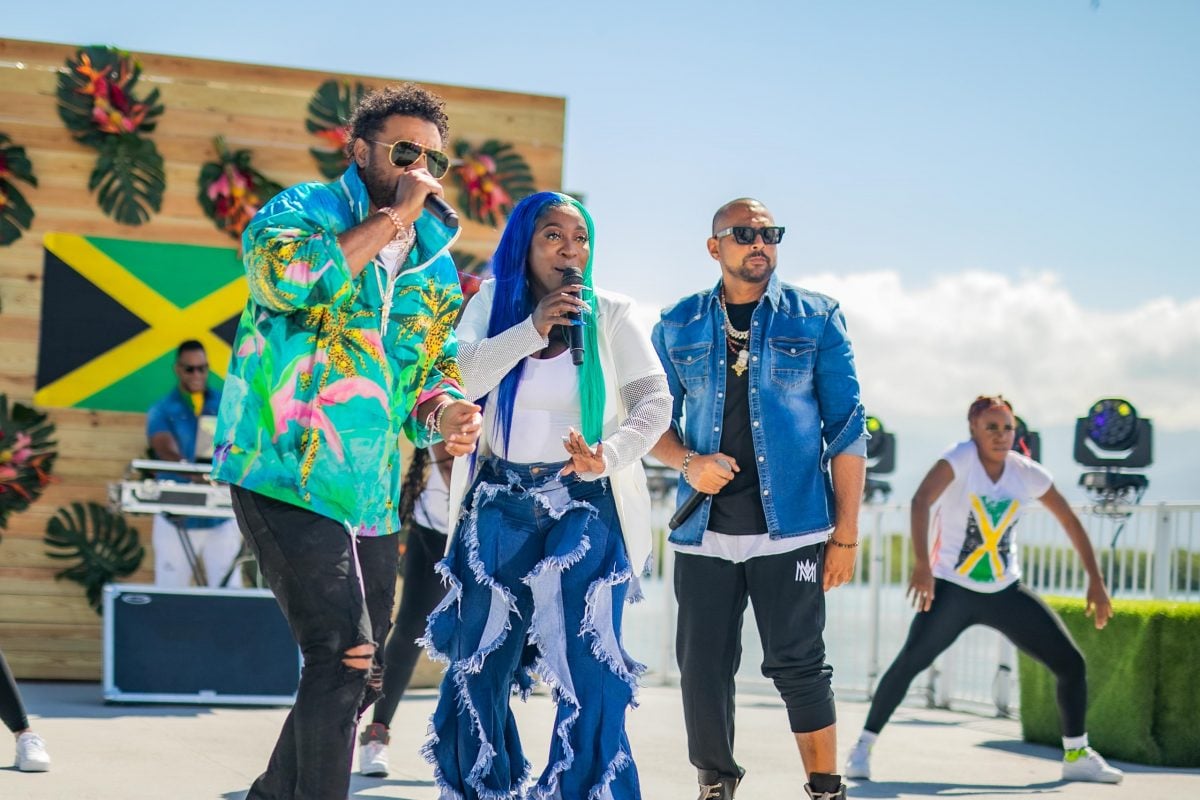Ruff Kutt’s Nigel Staff Bemoans Spice’s Failure To Impact Billboard Charts

Award-winning record producer, songwriter and musician Nigel Staff has bemoaned the fact that Reggae Grammy nominee Spice could not impact the Billboard charts with her 10 album, despite her former label VP Records spending heavily on promotion.
Staff, who was speaking on Onstage during an interview with host Winford Williams, said that the fundamental reason Dancehall releases nowadays were failing to chart, and have low sales, was that they are not written using the requisite tried-and-tested formula for songwriting, which had been mastered by many of their predecessors and some of their contemporaries.
“We are not making any songs. An whoever waan vex wid mi vex wid mi, wi naw meck no song,” Staff told Williams.
“Dis is why wi last big song a Koffee. Dis is why – an mi know seh Spice a guh cuss mi. Spice I love yuh; I love what you’re doing, but it really is strange that VP spent so much money to get you on Jimmy Kimmel; Good Morning America, Jimmy Fallon and all these nice promotion things, with three a the top acts outta Jamaica, Sean, Shaggy an the new girl on the block – the new queen and you weren’t able to break the Billboard charts? Official Billboard charts?” he asked incredulously.
Last August, Spice’s 10 album opened at No. 6 on the Billboard Reggae Albums chart. According to data provided to DancehallMag by Billboard’s sales tracker MRC Data, 10 had the equivalent of 1,447 total units of consumption from sales and streaming in the United States during its first week of release. The album disappeared from the Billboard chart following the second week, after picking up only 649 more units, according to MRC Data.
Speaking about VP’s investment, Staff added: “You looking at a quarter million US (dollars) enuh. Nobaddy caan tell me nutttn. Mi know how music business work. Shaggy caan trick mi. Dah 10 million suppm deh weh yuh a do pon YouTube nuh work.”
In November, Shaggy had suggested that, for business reasons, VP Records did not go above and beyond for the Queen of Dancehall’s debut album . VP’s CEO Chris Chin reacted to the It Wasn’t Me singer’s comments, saying that the NY-based label did invest heavily in the album.
On November 23, Spice’s 10 emerged among the six nominees for Best Reggae Album at the upcoming 64th Annual Grammy Awards. The album’s lead single — Go Down Deh with Shaggy and Sean Paul — landed on former US President Obama’s annual list of favorite songs and NPR’s 100 Best Songs of 2021 .
It has since has racked up over 41 million views on YouTube.

However, Staff said that while many artists were excited over YouTube views, he remained unimpressed, adding that almost half of the songs which have streamed one billion on YouTube were from the Reggaeton genre, which has its roots in Dancehall. These songs he said, were written with the Dancehall formula for hit songs.
“In order to sell Platinum, in streaming world you have to 1.5 billion streams – paid streams; 1.5 billion paid streams,” he emphasized.
“And it’s not a hard thing to do, because if I were to send you that video link, you know at least 70 percent a those songs. You know them. So is not a hard thing,” the ASCAP Pop Music Awardee said.
Staff, who co-produced Sean Paul and Keyshia Cole’s Give It Up To Me, is a key director of the legendary Ruff Kutt band which has provided key musical support Shabba Ranks, Bounty Killer, and Beenie Man.
During the Onstage interview, Staff also stated that it is the song structure/formula and not the genres that determined whether a song will be a hit or not, and that Jamaica should not be “hung up on genres”.
“My thing is, no matter the genre, the songs have to be great songs. The people decide what will be a hit song. You cannot write a hit song; you write a good song… a cultural song, a mama song, a gun song. Its the people that choose the hit. And what has been happening in the last I dare say ten years, we have not been making songs. Whether it’s trap dancehall, whether it’s dancehall, whether it’s reggae, whatever it is, when you look at the rest of the world when you look at reggaeton, they are making solid songs, songs that have intros, songs that have choruses,” he explained.
“We are not doing that; we are a bag of lyricists. We have succumbed to lyricism. We are suffering from two things, we are not making songs, and we don’t have our own industry; we don’t have our own ecosystem, we don’t have our own microcosm,” he said.
